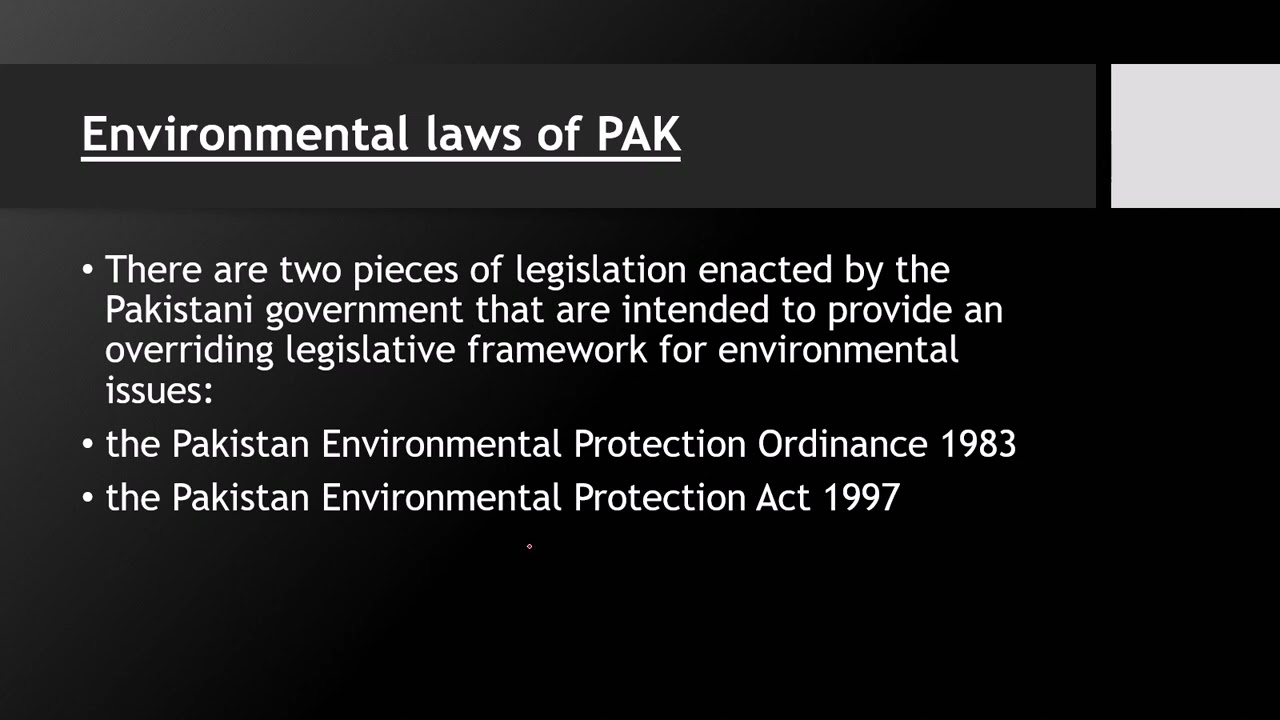The Role Of Law In Protecting The Environment - Safeguarding The Natural World
The role of law in protecting the environment is one of the most valuable resources on the planet, and it must be protected for the benefit of present and future generations. The law plays a vital role in safeguarding the environment by providing a legal framework for protecting it from harm caused by human activities.
Author:K. N.Mar 14, 2023172.7K Shares2.3M Views

The role of law in protecting the environmentis one of the most valuable resources on the planet, and it must be protected for the benefit of present and future generations.
The law plays a vital role in safeguarding the environment by providing a legal framework for protecting it from harm caused by human activities.
Understanding The Importance Of Environmental Protection
Environmental protection refers to efforts aimed at safeguarding the natural environment against harm caused by human activities.
It involves the protection of natural resources, such as water, air, and land, as well as the conservation of biodiversity, ecosystems, and endangered species.
Environmental protection is an essential aspect of sustainable development and is critical to ensuring a healthy and livable planet for present and future generations.
The importance of environmental protection cannot be overstated. The natural environment provides essential resources, such as clean air and water, fertile soils, and diverse plant and animal species that support human life.
Environmental protection also contributes to the mitigation of climate change, which is increasingly becoming a global threat. Human activities, such as burning fossil fuels and deforestation, contribute to the emission of greenhouse gases, which cause global warming and other climate-related problems.
Environmental protection also promotes social equity and justice. The poor and vulnerable are often the most affected by environmental degradation, which can lead to increased health risks, food insecurity, and displacement.
Environmental protection efforts can provide equal access to resources and promote the participation of all stakeholders in decision-making processes.
Laws And Regulations For Protecting The Environment
Lawsand regulations are essential tools for protecting the environment. They are established to prevent environmental pollution, promote sustainable development, and ensure the conservation of natural resources.
Environmental laws and regulations establish a framework for identifying, preventing, and mitigating environmental harm, and they apply to individuals, businesses, and governments.
Environmental laws and regulations are established at the international, national, and local levels. At the international level, agreements such as the Paris Agreement, the Kyoto Protocol, and the Convention on Biological Diversity provide a framework for addressing global environmental challenges.
These agreements are critical in addressing issues that transcend national boundaries, such as climate change and biodiversity loss.
At the national level, governments establish laws and regulations to protect the environment. These laws and regulations vary from country to country and often include measures such as pollution controls, waste management, environmental impact assessments, and the protection of endangered species.
Governments also establish environmental agencies and institutions to enforce environmental laws and regulations and monitor compliance.
At the local level, laws and regulations are established to address environmental issues specific to a particular region.
These laws and regulations often focus on local environmental issues, such as air quality, water pollution, and land use.
Local governments also establish environmental policies and programs to promote sustainable development and address local environmental challenges.
The effectiveness of environmental laws and regulations in protecting the environment depends on the ability of governments and institutions to enforce them.
Governments must provide the necessary resources and capacity to enforce environmental laws and regulations effectively.
Institutions must also work to ensure that businesses and individuals comply with environmental laws and regulations and that there are consequences for non-compliance.
The Role Of Law In Protecting The Environment - Role Of Citizens
Citizens play an essential role in the role of law in protecting the environment. Environmental laws and regulations are established to protect the environment and prevent environmental harm caused by human activities.
However, these laws and regulations can only be effective if citizens are engaged in their enforcement. The purpose of this essay is to examine the role of citizens in enforcing environmental law.
Citizens have the right to be informed about environmental issues and to participate in decision-making processes that affect the environment.
Environmental laws and regulations provide citizens with the opportunity to take legal action against individuals, businesses, and governments that violate environmental laws.
Citizens can also participate in public hearings, comment periods, and other decision-making processes that relate to environmental issues.

Environmental law | Environmental laws in Pakistan | A-Z Concepts guide
Legal Remedies For Environmental Damage
Environmental damage is a serious issue that can have far-reaching consequences for both the natural world and human health.
When environmental damage occurs, legal remedies are often required to ensure that the responsible parties are held accountable and that the damage is addressed.
One of the primary legal remedies for environmental damage is compensation. This involves requiring the responsible parties to pay for the cost of restoring the damaged environment to its original state.
This compensation can cover a wide range of costs, such as the cost of cleaning up pollution, restoring habitats, and addressing the impacts of climate change.
Another legal remedy for environmental damage is injunctive relief. This involves requiring the responsible parties to take specific actions to prevent further harm to the environment.
For example, an injunction may require a factory to reduce its emissions, a developer to alter its construction plans to protect habitat, or a farmer to reduce the use of pesticides.
Criminal penalties can also be used as a legal remedy for environmental damage. These penalties can range from fines to imprisonment and are typically reserved for cases of intentional or egregious harm to the environment.
Criminal penalties can serve as a deterrent to future environmental damage and send a message that environmental protection is a serious issue.
Civil lawsuits are another legal remedy for environmental damage. Civil lawsuits can be brought by individuals, environmental organizations, or governments to seek damages or injunctive relief.
These lawsuits can be used to hold companies or individuals accountable for environmental harm and can be an effective way to address environmental issues that may not be addressed through other legal remedies.
People Also Ask
What Are Some Environmental Laws And Regulations?
Environmental laws and regulations include the Clean Air Act, Clean Water Act, Endangered Species Act, and National Environmental Policy Act.
What Is The Purpose Of Environmental Law?
The purpose of environmental law is to prevent environmental harm, promote sustainable development, and ensure the conservation of natural resources.
How Are Environmental Laws Enforced?
Environmental laws are enforced through agencies such as the Environmental Protection Agency (EPA) and citizen action, including lawsuits and public participation.
What Is The Importance Of International Environmental Agreements?
International environmental agreements are important because they provide a framework for addressing global environmental challenges that transcend national boundaries, such as climate change and biodiversity loss.
Conclusion
In conclusion, the role of law in protecting the environment plays a critical role in protecting the environment by providing a legal framework that regulates human activities that might cause environmental harm.
It ensures that individuals and organizations are held accountable for their actions and encourages sustainable development.
The implementation and enforcement of environmental laws are crucial in protecting the environment for present and future generations.

K. N.
Author
Latest Articles
Popular Articles
